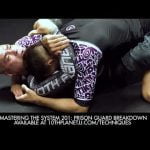The Untold Story: Discovering What Really Happened to Spencer Fisher
MMA fighters lead a challenging and intense lifestyle, pushing their bodies and minds to the limit on a daily basis. One aspect that often goes unnoticed is the toll this sport takes on their overall well-being. One fighter who has recently shed light on this issue is Spencer Fisher, a former UFC lightweight contender.
Spencer Fisher’s story is a cautionary tale of the consequences of going overboard in MMA. After a long and successful career, Fisher started experiencing severe health issues, including memory loss, difficulty speaking, and tremors. It was later revealed that his symptoms were a result of chronic traumatic encephalopathy (CTE) caused by repeated blows to the head during his fighting career.
This untold story serves as a wake-up call for the MMA community, highlighting the need for better safety protocols and increased awareness of the long-term effects of the sport.
Understanding the Impact of MMA on the Brain: A Comprehensive Analysis
The sport of MMA involves various combat techniques, including striking and grappling, which can lead to head injuries and concussions. These repeated blows to the head have been linked to the development of CTE, a degenerative brain disease.
Studies have shown that MMA fighters are at a higher risk of brain trauma compared to athletes in other contact sports. The combination of punches, kicks, and takedowns increases the likelihood of head injuries, leading to long-term consequences for fighters’ cognitive function and overall quality of life.
It is crucial for fighters, trainers, and organizations to prioritize the safety of athletes and implement measures to minimize the risk of brain injuries. This includes regular medical check-ups, mandatory rest periods, and proper training techniques that focus on minimizing head trauma.
Building Pain Tolerance in Fighters: Expert Tips and Techniques
Pain tolerance is a vital aspect of being an MMA fighter. The ability to withstand pain and continue fighting can often make the difference between victory and defeat. However, it is essential to strike a balance and avoid going overboard, as excessive pain can lead to serious injuries and long-term consequences.
Here are some expert tips and techniques to help fighters build their pain tolerance:
- Gradual exposure to pain: Start with low-intensity training and gradually increase the level of discomfort to build resilience.
- Mental preparation: Develop mental strategies to cope with pain, such as visualization and positive self-talk.
- Proper recovery: Allow sufficient time for rest and recovery to prevent chronic pain and injuries.
- Physical conditioning: Strengthen the body through strength and conditioning exercises to better withstand the physical demands of the sport.
By following these strategies, fighters can enhance their pain tolerance while minimizing the risk of long-term consequences.
Do MMA Fighters Feel Pain? Debunking Myths and Shedding Light on the Reality
Contrary to popular belief, MMA fighters do feel pain. The intense physicality of the sport exposes fighters to a considerable amount of pain during training and competitions. However, their ability to manage and endure pain is what sets them apart.
MMA fighters undergo rigorous training to condition their bodies and minds to handle pain effectively. Through mental fortitude, physical training, and the adrenaline rush during fights, fighters can push through the pain and continue performing.
It is crucial to understand that while fighters can tolerate pain, it doesn’t mean they are immune to its consequences. Long-term injuries and health issues can still arise from disregarding the body’s warning signs and pushing beyond reasonable limits.














